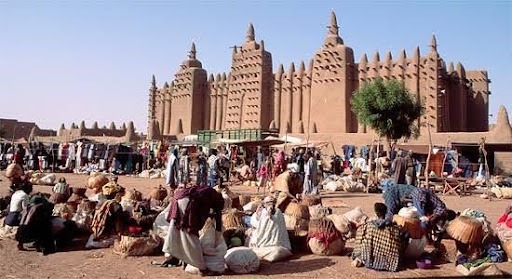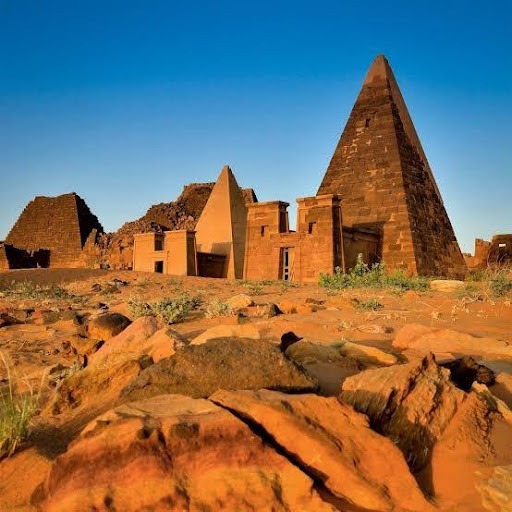By Rukayat Fatai
Despite being home to some of the world’s most powerful and sophisticated ancient civilisations, Africa’s history is often underrepresented or oversimplified.
Before the advent of colonialism, Africa was home to some of the world’s most advanced and influential civilisations, with empires that rivalled and, in many cases, surpassed their contemporaries in wealth, governance, education, and cultural development. Their stories also reflect Africa’s leadership in terms of intellectual pursuit, wealth accumulation, and architectural marvels, long before colonial narratives distorted the past.
This article discusses the richness of these empires, not just to remember them, but to learn from their systems, values, and contributions. As we reclaim our narratives, understanding these great empires is key to restoring a deep sense of pride and purpose in African heritage.
The Mali Empire (1235-1600 AD)

The Mali Empire was a powerful West African empire that existed from the 13th to the 17th centuries, known for its wealth, trade networks, and the rule of rulers like Mansa Musa, the wealthiest man in recorded history. Founded by Sundiata Keita in 1235, it controlled vast territories and flourished through a combination of military strength and economic prosperity. Stretching across West Africa, Mali controlled vital trans-Saharan trade routes, dealing in gold, salt, and ivory.
Timbuktu, its intellectual hub, became a beacon of Islamic learning, attracting scholars from across Africa and the Middle East. What made Mali exceptional was its blend of commerce and culture. The empire upheld religious tolerance, complex taxation systems, and a thriving artistic scene. The Mali Empire declined after the death of Mansa Musa and the Songhai took over.
The Songhai Empire (1464-1591 AD)

Following the decline of Mali, the Songhai Empire emerged as the most powerful West African empire. Under the leadership of Sunni Ali and later Askia Muhammad, Songhai expanded its territory with a professional army and an effective centralised government. Cities like Gao and Timbuktu continued to thrive as educational and commercial centres as they connected with North Africa and Europe through the trade of gold and salt.
Askia Muhammad revolutionised administration by creating provinces with appointed governors, a treasury, and a court system based on Islamic law. The empire’s military organisation and robust trade networks made it a formidable force. Songhai’s legacy lies in its strategic unity it brought to diverse ethnic groups across the Sahel, Niger and part of Mauritania included.
The Kingdom of Kush (1070 BC–350 AD)

The Kingdom of Kush was located south of ancient Egypt, in present-day Northern Sudan. Known for its capital cities, such as Napata and Meroë, Kush thrived as both a rival and a partner to Egypt. Remarkably, Kushite rulers once conquered and ruled Egypt as its 25th Dynasty, bringing African influence into the very heart of the Nile Valley.
Kush distinguished itself with its ironworking industry, pyramids (smaller but more numerous than those in Egypt), and a unique writing system called the Meroitic script. They are known for their extensive trade routes, bringing wealth from the Nile, Mediterranean Sea, and Red Sea to the Indian Ocean. Women played powerful roles in Kushite society; queens and queen mothers (Kandakes) held political and spiritual power. The empire’s resilience and cultural pride highlight a lesser-known, yet highly influential African civilisation.
The Mali Empire, under Mansa Musa, showcased economic might so vast it influenced global markets, while Timbuktu stood as a centre of scholarship and intellectual exchange. The Songhai Empire exemplified strategic governance and military strength, uniting diverse peoples across vast territories with an organised administrative system. Further east, the Kingdom of Kush not only rivalled ancient Egypt but also ruled it at one point, pioneering iron production, trade expansion, and female leadership.
These empires are enduring proof that Africa’s greatness predates colonial narratives; a continent rich in innovation, leadership, and civilisation long before its history was interrupted. The empires offer blueprints for governance, education, economic sustainability, and cultural integrity. These are also reminders that Africa’s greatness is not a dream; it is a reality that has been and will continue to be, in different forms.









